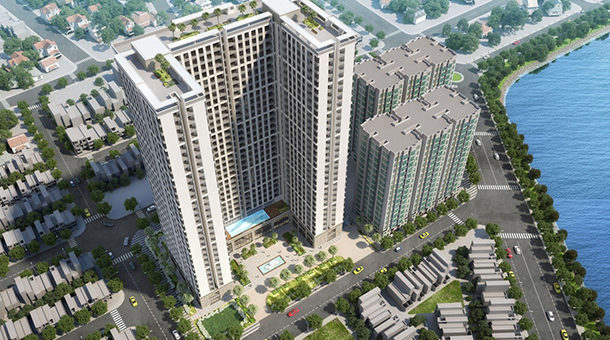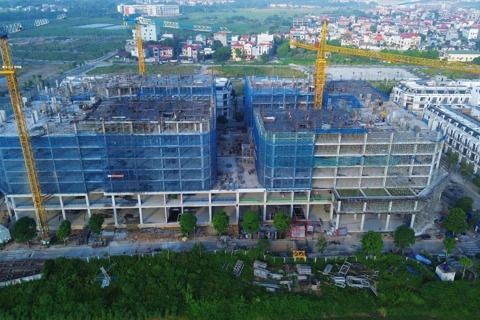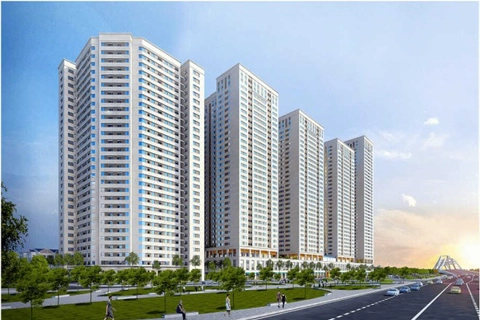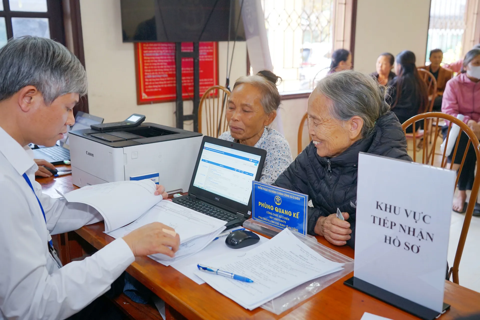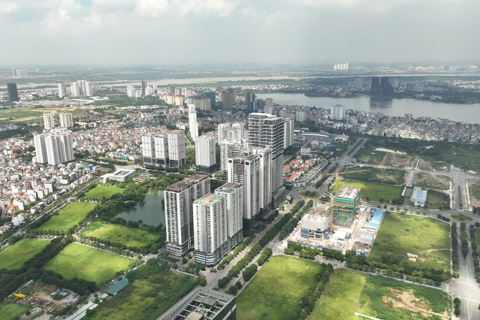Foreigners still struggle to own property in Vietnam
Experts have called for loosened legislation to facilitate foreign ownership of property in the country.
Though being keen to buy property in Vietnam, many foreigners are finding it hard to overcome cumbersome legal procedures to own the asset in the country.
According to Stephen Wyatt, country head of real estate services firm JLL Vietnam, since the Vietnamese government issued a law in 2015 that allows foreigners to buy and own houses in the country, many international customers have come seeking opportunities and invested in high-end apartments.
The number of foreign buyers is in the thousands, versus a few hundred before the law was introduced, but obtaining land use rights certificate, aka red books, continues to be a challenge for the buyers, with many of them reportedly struggling to secure a certificate of ownership for their property, Stephen said.
| Many foreign property buyers have problems getting certificates of ownership. |
Sharing the same view, Nguyen Hoai An, director of service commercial real estate firm CBRE Vietnam’s Hanoi branch, said Vietnam has a legal framework to allow foreigners to buy and own property in the country, but the process has obstacles in the form of the language and laws for implementing legal documents.
In fact, a challenge faced by foreigners in buying realty products in the country is that all documents are usually in Vietnamese. This is an inconvenience as foreigners are signing a legal contract in a language they don’t understand, so this makes the foreigners very uncomfortable, as signing is based simply on trust.
Many foreign customers receiving houses or apartments have had problems getting certificates of ownership, An said, adding that most projects of local investors have not had customer support teams to help foreign buyers during property transactions, making it hard for foreigners to buy from those projects.
Besides, An said that foreign buyers have faced barriers to buying real estate in Vietnam as the law provides caps on the foreign ownership of each property project.
She explained that for apartment projects, foreigners can only own 30% of the apartment volume, while for townhouse projects, the portion is not to exceed 10% or 250 units.
Comprehensive measures
To promote foreigners’ trading of real estate products on the local market, An suggested that it is necessary to streamline legal documents, circulars, procedures and support foreigners in buying real estate in the country. The government needs to fine-tune the process of issuing red books and certificates of ownership for property belonging to foreigners.
Meanwhile, Nguyen Manh Ha, vice chairman of the Vietnam Real Estate Association, said the state should have a handbook for buyers to provide guidance on all steps of the home transaction procedures and the state agencies implementing those steps. That will make it easier for foreign buyers to navigate the property purchasing process.
As the foreign property ownership cap, which is aimed at maintaining a national economic and political balance, in some cases limits sales volume to foreigners despite strong demand, experts recommended issuing more flexible regulations on the issue.
Matthew Powell, director of property consultancy Savills Vietnam’s Hanoi branch, proposed that instead of a fixed threshold, the cap could be a range, varying between types of residential products, location and grade.
For example, he said, raising the limit for grade A apartment projects in Ho Chi Minh City or high-end villas in Da Nang could only generate more sales to investors of those projects and ultimately benefit the Vietnamese economy. Further discussion on the extent of the adjustments should take place between government agencies and real estate consultancy practices.
In addition, the administration processes and procedures could be streamlined and updated to accommodate international buyers.
*In Vietnam, land is collectively owned by people and administered by the government on their behalf. Therefore, under such a system, property owners cannot have full and legal ownership of land. Their rights are limited to land use rights permitted within the law. Land users typically receive a land use rights certificate which shows the land user’s rights on the property.

